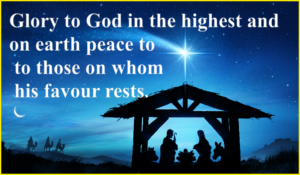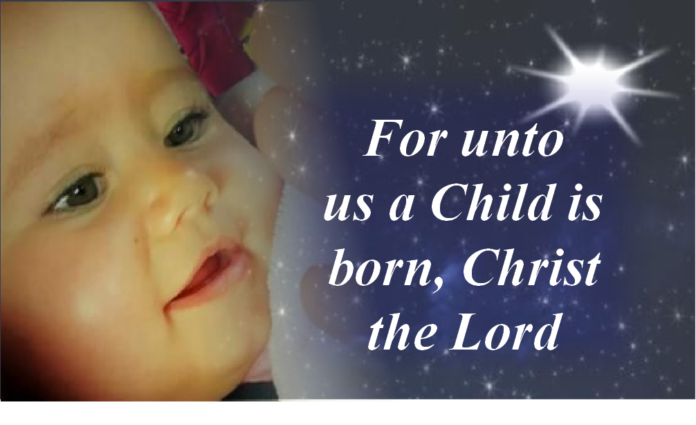Adverts announcing the ‘magic of Christmas’ alert us – starting earlier every year it seems – to the markets and merchandise of the mid-winter season. For Christians it is the mystery of Christmas that counts. As Advent announces the coming of ‘a child who has been born for us, a son given to us’ (Isaiah 9:6), Christmas literally confirms the prophecy with the arrival of the Christ child born in Bethlehem. For Christian faith the message and meaning of Christmas are not mercantile but missionary, revealing that the feast is not about retail transactions but the tender relationships between God the Father and Son, between Mary and her newborn son.
The Incarnation is neither illusory nor an abstract proposition, neither the product of psychological projection or philosophical speculation but a proclamation that announces the actual presence of the Son of God, proceeding from the Father and entering into human existence with the goal of glorifying God through the people who have ‘walked in darkness’ (Isaiah 9:2), waiting for ‘the dawn from on high to give light to those who live in darkness and the shadow of death, and to guide [their] feet into the way of peace’ (Luke1:79). In the Incarnation (from the Latin, entering into/taking flesh) both faith and fact are fused in the figure of ‘the Word made flesh’ (John 1:14), integrating the immensity and immediacy of God’s presence in the infant Jesus, born of Mary, ‘the child conceived in her from the Holy Spirit (Matthew 1:20).
From creation to conception the first fourteen verses of the Gospel of John are centered on Jesus Christ, called the Word, his relationship with God and the world through the truth of his life and light. Raymond Brown wrote that the church uses this [the Prologue] at the third Mass of Christmas in order to bring out the fullest meaning of what that feast reveals’.[1] From eternal to earthly, the existence of the Word is evident, explored and expressed  endlessly by the church on earth in its mission of evangelization and eschatological hope.
endlessly by the church on earth in its mission of evangelization and eschatological hope.
The Nativity is neither a fiction nor a fantasy but an event, celebrated at – the aptly named – Christmas with the human birth of One whose origin is beyond, before history began. Recorded in scripture, remembered in hymnody, represented in art, the birth of Jesus is a reminder of the dignity, beauty and sanctity of all human life. Where words run out before the wonder of Christ’s Nativity, a space is opened for wisdom, the innocence to imagine a world without woe and war, where ‘the peace of God which is beyond all understanding will guard your hearts and your thoughts in Christ Jesus’ (Philippians 4:7).
Fr Kevin O’Gorman SMA
[1] Christ in the Gospels of the Liturgical Year, (Collegeville, MN: Liturgical Press, 2008), p. 416.

